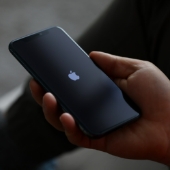 It’s a familiar problem: over time, even the fastest phones begin to slow down. Apps take longer to load, screens freeze, and multitasking becomes a chore. If this sounds like your phone, don’t worry. There are some simple adjustments you can make to minimize iPhone lag.
It’s a familiar problem: over time, even the fastest phones begin to slow down. Apps take longer to load, screens freeze, and multitasking becomes a chore. If this sounds like your phone, don’t worry. There are some simple adjustments you can make to minimize iPhone lag.
Restart your phone
More often than not, restarting your phone can solve various performance issues. By turning the device off and on again, you are closing all background apps and clearing up any temporary data that may be clogging your system. Simply press and hold the power button until the “slide to power off” option appears, then swipe to turn off your phone. Wait a few seconds before pressing the power button again to turn it back on.
In fact, it’s a good habit to restart your phone once a week to keep it running smoothly. Malware attacks that run in the background are known to slow down phones, and a simple restart can hamper these processes, preventing them from damaging your device and minimize iPhone lag.
Uninstall unused apps
Over time, apps you no longer use can clutter your phone and slow it down, which is why it’s essential to regularly check and uninstall any unused or unnecessary apps. To do this, simply press and hold an app icon until the “x” appears in the top left corner. Tap the “x” to delete the app permanently. Doing this will free up storage space and reduce the load on your phone’s processor, allowing it to run faster and smoother.
Check your battery health
Your iPhone’s performance heavily relies on its battery health. The problem is many iPhones throttle performance as the battery ages to prevent unexpected shutdowns and prolong usage. This trade-off often prioritizes battery life over speed, as most users would prefer a phone that lasts all day rather than one that’s slightly faster but dies early.
That’s why it’s crucial to regularly check your battery health and make sure it is performing at its best. You can check your iPhone’s battery health by heading to Settings > Battery > Battery Health & Charging. Here, you’ll see the maximum capacity of your battery and whether it needs replacing. Getting ahead of a failing battery can prevent sluggish performance and extend the life of your iPhone.
Simplify your iPhone functions
iPhones come loaded with features like widgets, motion effects, and background app refresh. While these are designed to enhance your user experience, they can also slow down your phone. So, if you’re experiencing lag on your iPhone, try simplifying its functions by turning off any unnecessary features.
Simplify your setup by:
- Removing unnecessary widgets from your home screen.
- Turning off Background App Refresh under Settings > General > Background App Refresh.
- Disabling motion effects in Settings > Accessibility > Motion.
Update regularly
Apple regularly releases software updates that contain bug fixes, security patches, and performance improvements. By keeping your iPhone updated with the latest software version, you can ensure that it is running at its best.
To check for updates, go to Settings > General > Software Update. If an update is available, follow the prompts to download and install it. Updating your phone not only improves its performance but also protects it from potential security threats that can slow down or harm your device.
Clear cache and data
As you use your phone, it accumulates temporary data and cache files, which can slow down your device. Clearing these periodically can improve performance.
To do this, go to Settings > General > iPhone Storage. Here, you’ll see a list of apps and how much storage they are taking up on your phone. Tap on an app to see the option to “Offload App” or “Delete App.” Offloading an app will remove it from your phone but keep its documents and data intact, while deleting it will remove all associated data as well.
Your web browser also stores temporary data and cache, so clearing this can also improve your phone’s performance. For Safari, go to Settings > Safari > Clear History and Website Data.
A sluggish phone doesn’t have to be a constant frustration. If you need more technical advice and support on maintaining your iPhone’s performance, we can help. Contact our tech experts today and get your phone back to running at optimal speed.



